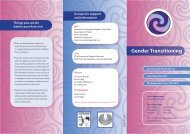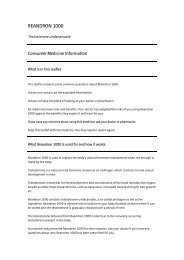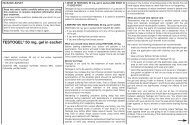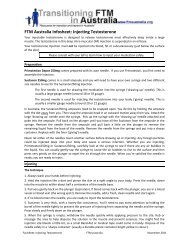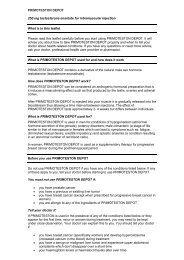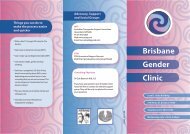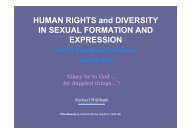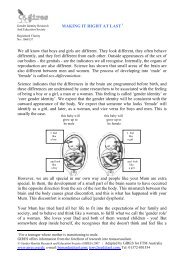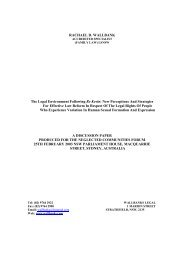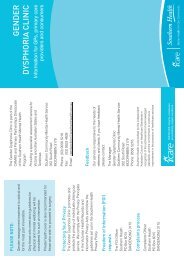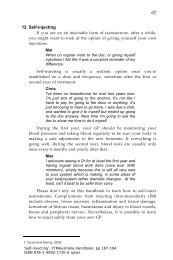It's My Body Isn't It - FTM Australia
It's My Body Isn't It - FTM Australia
It's My Body Isn't It - FTM Australia
Create successful ePaper yourself
Turn your PDF publications into a flip-book with our unique Google optimized e-Paper software.
Conclusion<br />
UK jurisprudence has already shown a fissure between a child’s right to<br />
consent to medical treatment and a child’s right to refuse medical treatment<br />
so that clearly Gillick competent minors are having their strongly held<br />
wishes overborne with respect to refusing medical treatment. <strong>It</strong> would be<br />
surprising if the Family Court was not called upon to adjudicate a dispute of<br />
this type in the foreseeable future.<br />
To the extent that UNCROC is embodied in the Family Law Act, and<br />
particularly as far as a child’s best interests are concerned, the determination<br />
of cases has been made with a child-rights focus. However, the way those<br />
rights are articulated and given effect and the priority they are accorded as<br />
against the rights of other parties will unarguably be different if cases are<br />
conducted within an explicit rights framework. The post Human Rights Act<br />
litigation in the United Kingdom shows that, as least as far as consent to<br />
medical treatment is concerned, a statutory rights based instrument makes<br />
manifest that which can often be obscured by an open-ended ‘best interests’<br />
inquiry. In so doing, a human rights act has enormous potential to give real<br />
and enduring effect to young people’s right to make their own decisions<br />
about their own bodies.<br />
20



